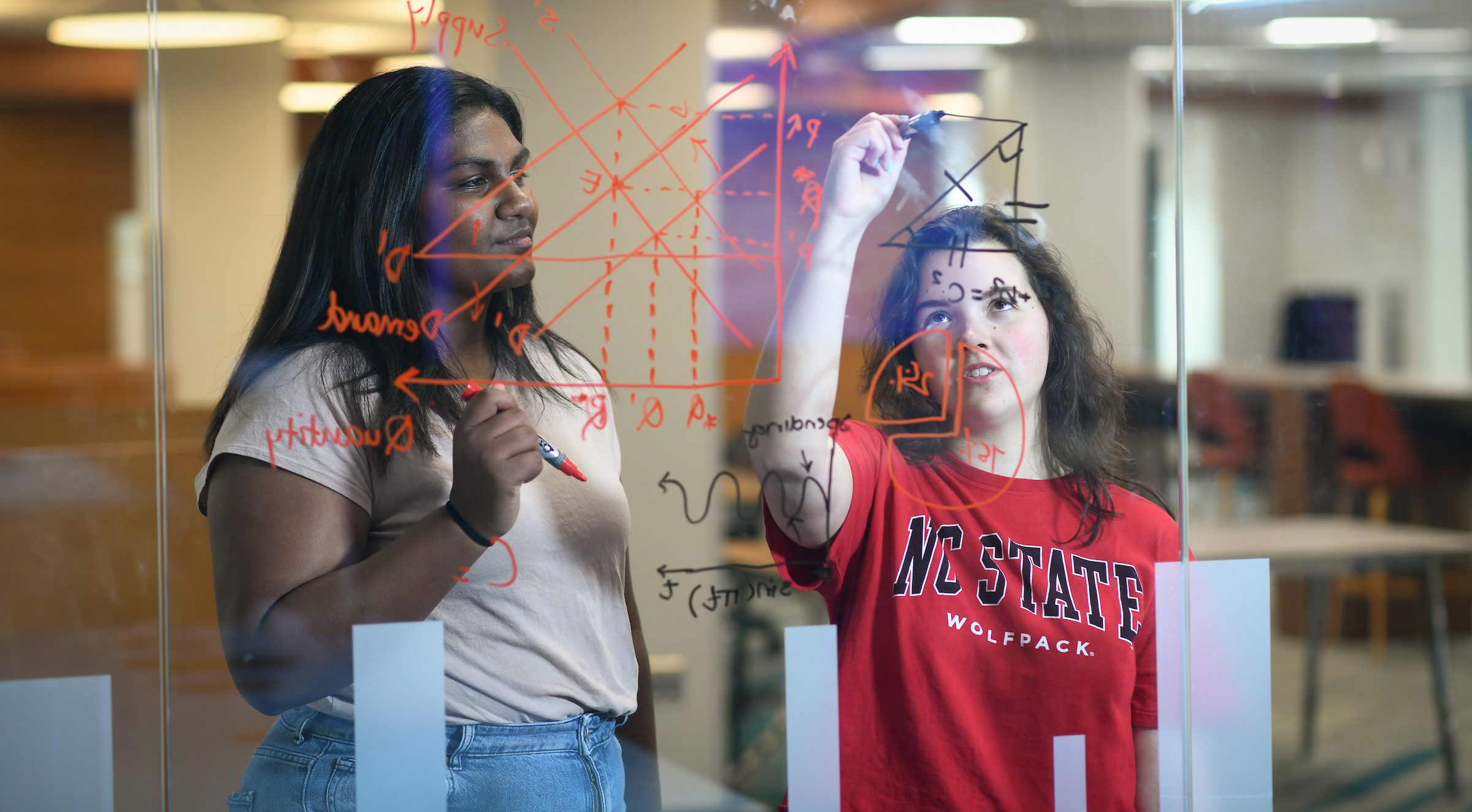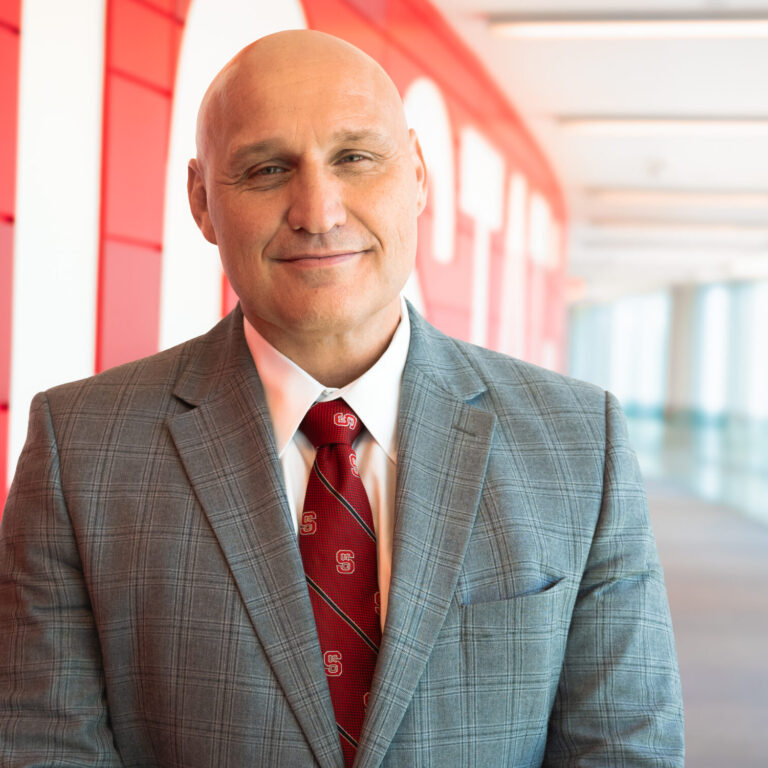
Music Technology
Develop new technologies for the music industry.
Program Overview
The Music Technology degree prepares students to develop new technologies for the music industry and related sectors through a combination of rigorous professional training in music with intensive interdisciplinary study in electrical engineering, computer engineering, design, and arts entrepreneurship.
Note that this is not a program in music production, sound engineering, or music editing. Instead, it is intended for students preparing for commercial or entrepreneurial careers in music/audio hardware design, software or app development, consumer electronics, music streaming services, and multidimensional audio at companies like Apple, Moog, Ableton, and Samsung. Our goal is to train you to be inventors and designers of new music technologies, rather than users of existing technology.
Since musicians are the end users of the products you will be developing, it is important for you to be trained in music as well: how it works; how it is composed, performed, and heard; and how to explain its historical and technological progress. This is to help you integrate and communicate a range of musical styles, performance practices, and creative projects with the design, development, and implementation of advanced music technologies.
What is Music Technology?
As the music industry and music itself evolve, technology plays a larger and larger role in its creation, performance, production and consumption. Recent technological innovations, such as new electronic musical instruments, commercial online distribution platforms, and mobile music applications, have fundamentally changed every stage of the music-making pipeline. Often the technologies that musicians rely upon were developed by engineers with no formal training in music, and they fall short of the needs of the end users.
There is an increasing need for educated professionals with sophisticated skills in both music and technology development in the arts and entertainment industries, software and professional audio corporations, education, music hardware manufacturers, and manufacturers seeking to integrate music into their products (think cars, computers and media applications). These developments have created a need for technologically literate musicians and artistically creative engineers to develop and operate the technologies at the core of modern music-making.
Why Music Technology at NC State?
Throughout your time as a student in our music technology program, you will develop a diverse skillset.
- Gain deep understanding and practical skills within the related fields of electrical or computer engineering
- Learn to identify and solve music technology problems utilizing skills in project development, testing and production
- Develop supporting skills and knowledge in entrepreneurship and industrial design
- Build a foundation of theoretical and practical skills in music
- Understand what it means to perform as a solo or ensemble musician and how technology impacts musicians
- Build practical skills with current music technologies
Degree Requirements
The undergraduate major in Music Technology is an interdisciplinary program that provides a foundation of theoretical and practical skills in music and electrical and computer engineering to prepare students to design, develop, and implement advanced music technologies. Throughout the program, you will focus on integrating a broad range of musical styles, performance practices, and creative projects with the design, development, and implementation of advanced music technologies, in close partnership with an engineering discipline.
In addition to a variety of supporting courses and a two-semester senior design project, it has three primary components:
- A musicianship core (29 hours including applied and ensemble study)
- An engineering core (26 hours including calculus and physics)
- A music technology core (18 hours)
Concentrations
Each student will select a concentration in either Software and Digital hardware (SDH) or Electronics and Circuits (EC). Learn about each area of study below.
Software and Digital Hardware (SDH)
Students pursuing the Software and Digital Hardware concentration will take an additional 9 hours of engineering courses focusing on the design of computing systems.
Electronics and Circuits (EC)
Students pursuing the Electronics and Circuits concentration will take an additional 10 hours of engineering courses focusing on the design of electronic systems.
FAQs
What do I need to know to enroll in the required math classes for the Music Technology degree?
Math Placement
We encourage students to use the included learning modules to improve their scores and placement. You can retake the assessment up to four times.
Prerequisites
- Prerequisites are not enforced for MA 107 or MA 111. The ‘prereqs not met’ flag may show in the pack planner for these courses, but it will not be there in the enrollment wizard, and students shouldn’t have trouble enrolling.
- Students who need MA 141 but do not meet the prerequisite (76 or higher on the ALEKS placement test or MA 111 or MA 107+108) should enroll in MA 111.
Enrollment Help
Students who are unable to enroll in math courses because of prerequisite issues can request help using the form linked below. We can help with enrollment for students taking summer courses or who already know their AP calculus scores. Students waiting for AP scores to be released in July should take the math placement test instead of using this form and then adjust their enrollment after their AP credit has been posted.
If math classes have reserved or restricted seats, students should first attempt to add themselves to the waitlist.
As a first-semester student, do I need to enroll in all first-semester requirements for the Music Technology degree?
Yes. You may end up testing out of some of them, and then your schedule will be adjusted accordingly as those classes will be removed. If you foresee testing out of classes, please sign up for additional classes from your list of second-semester required classes to ensure you will still have a full load of classes your first semester. Any classes you end up testing out of or don’t need can be dropped before Census Day in the first two weeks of the year.
Questions?
Please contact Stuart Benkert with any questions about the music technology degree program or the admissions process.
Start Your Application

